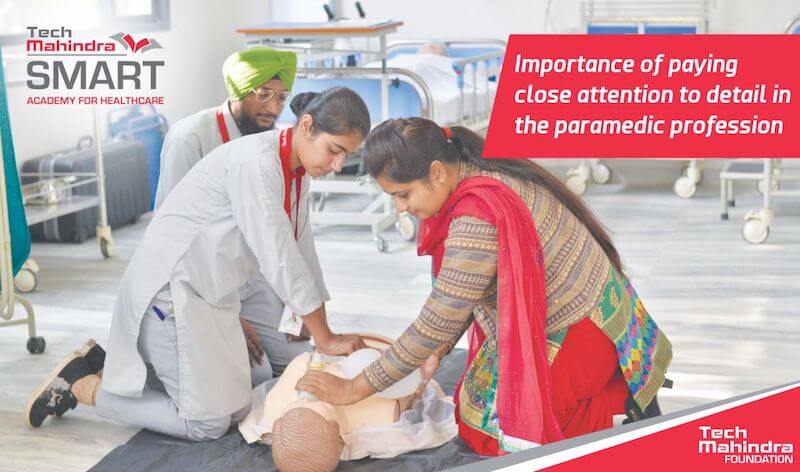Do you aspire to work as a paramedic? The blog has been written for the benefit of those individuals who aspire to work as a paramedic technician or professional.
The ever-increasing population, the rising complexity of diseases and growing life expectancy has made the healthcare sector a 24*7 operating profession. In order to ensure optimal health and to stay in line with the medical advancements, all healthcare practitioners need to exercise attention to detail and utmost care.
Healthcare as a profession requires great attention to detail in order to not miss critical signs indicating the illness and development of new symptoms. In the face of the increasing workload and to reduce mistakes, the emphasis is on proficiency which requires rigorous training.
The paramedical profession involves initial interaction with the patients as well as the physical recording of the vital signs to facilitate Doctors and Surgeons in the interpretation of the symptoms to determine the further course of treatment. This involves huge attention to detail as prioritization also depends greatly on these details. Say, for instance, there is a situation such as a natural calamity or a major accident involving multiple casualties. The paramedics, then need to prioritize patients based on their specific details such as pulse, BP, level of consciousness etc.
Below are pointers that they need to pay attention to:
Skin assessment: While a layman would think that pulse assessment or visible signs are enough to assess the condition of a patient, even minor details such as wrinkling on the skin are important determinants of the further course of action specially in case of dehydration. As a paramedic, one has to pay close attention to wrinkles, skin colour change, visible cuts or bruising, pressure soles etc.
Nail Assessment: Nail surfaces usually appear flat or minorly curved in all people despite their age. Any abnormality may indicate an underlying health condition. In case of an emergency patient, the paramedics may examine the nails and decide which branch or doctor to refer to based on the indications. Some indications are as below:
- Clubbing of nails: This may be a sign of a cardiac disorder
- Colour of the nail as in blue colour indicates low oxygenation due to various causes
Head and neck position and movement: A paramedic needs to pay close attention to the range of motion of the head and neck. This gives a fair idea of multiple conditions such as vertebral fractures, stroke or even severe intracranial infection or bleeds.
Facial features: It must be carefully noted if the eyes, eyebrows, nose and mouth appear centred and in the right symmetry. Any deviations from the normal may indicate a stroke or facial paralysis.
Muscular stability and body functionality: A close assessment of body balance, posture, ability to change positions etc. is required in order to examine the current health status of a patient. An examination of the health history data is also important to observe deviations in these features if any.
Breathing pattern: Changes in the breathing pattern or sounds of the lungs are indicators of deterioration in the patient’s health. The focus of the paramedic to these details can go a great way in saving lives.
Cognitive skills and mood disorders: The risk of dementia and other neurological illnesses increases with age and it is important for a paramedic to be able to record the basic signs during the initial stages. These assessments are also required in case of unconsciousness or where self-harm may be caused by the unstable patient. A basic psychological assessment based on a scientific checklist can help determine the further plan of action as well as to prevent further harm.
The healthcare ecosystem comprises of various roles which are interdependent on one another. While you may think that doctors save lives, which is true, however, it is equally true that they are in essence a part of the system since in many cases the paramedics spend more time with the patient and can therefore detect changes in a patient much earlier. The paramedics need to be trained in a way that they pay utmost attention to the minor changes and the help the Doctor help in the treatment process. This is of special importance in pre-hospital situations where their presence of mind and training experience also helps them administer initial care and safe medication in the absence of a doctor. This is of great importance in case of mass casualties.
Hope you all would have realized the importance of attention to detail for a paramedic professional. The attention to detail is hence a major trait that a paramedic must possess. We hope and try our best to include this as part of our training courses at the Tech Mahindra SMART Academies for Healthcare.


